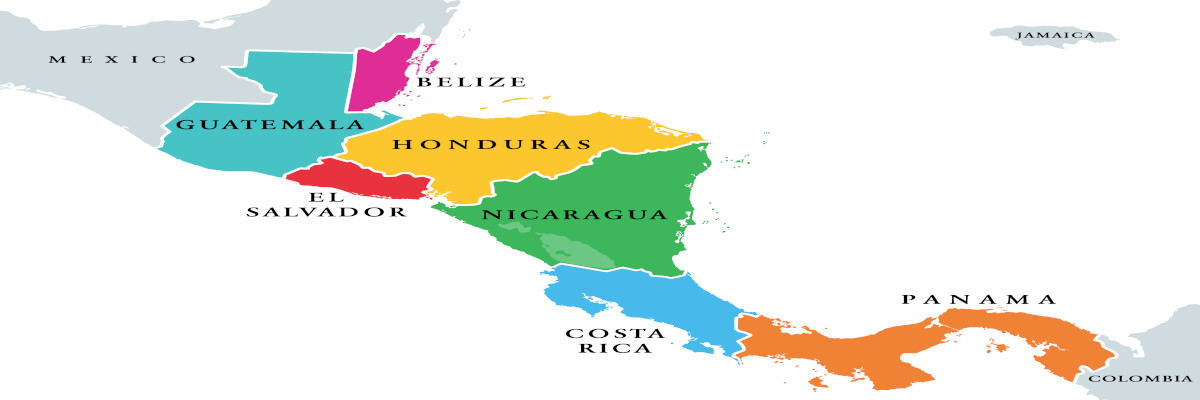Energy & Economics
The 4-letter catastrophe that is haunting Latin America: Corporate Colonialism through ISDS

Image Source : Shutterstock
Subscribe to our weekly newsletters for free
If you want to subscribe to World & New World Newsletter, please enter
your e-mail
Energy & Economics

Image Source : Shutterstock
First Published in: Oct.30,2024
Dec.02, 2024
Countries not abiding by corporate rules? No problem, foreign investors have got a powerful tool at hand to get it their way: Investor-State Dispute Settlement, commonly known as ISDS, is a mechanism inscribed in many Bilateral Investment Treaties (BITs) and Free Trade Agreements (FTAs). If governments decide to change regulations to better protect the environment or our climate, if they cancel mining concession due to social unrest, next thing you know, your country is being served with a corporate claim often worth hundreds of millions of dollars. ISDS is shrinking policy space all around the world, but there is one region particularly affected: Latin America and the Caribbean.
Out of the 1332 Investor-State Dispute Settlement (ISDS) claims known world-wide, 380 correspond to Latin American and Caribbean (LAC) States. This is close to 30% of all claims. Most of these claims derive from conflicts over mining concession, be it minerals or oil and gas. In times of a sky-rocketing demand for minerals for the energy transition, digitalization and militarization, these corporate claims by foreign investors are likely to increase.
It was back in the 1990s when countries in Latin America and the Caribbean, pushed by the International Monetary Fund, the World Bank and the neoliberal zeitgeist, signed most of the international agreements which today tie their hands and make every policy which might affect corporate profits and benefit people a potentially costly endeavour. A tribunal of three arbitrators decides over the investor´s complaint behind closed doors, ignoring national laws or the Constitution. These tribunals are administered by international dispute settlement centres, the most important being the World Bank’s “International Centre for Investment Dispute Settlement” (ICSID). Yes, the same World Bank that pressured countries to sign agreements with “investment protection provisions” in the first place. Three quarters of all claims against LAC countries have been decided before an ICSID tribunal.
To date, countries in the region have been asked to pay more than 33 billion dollars to investors, based on ISDS claims. This is more than the entire amount, plus one third, that climate catastrophes have cost the region between 1970 and 2021. We could thus call ISDS a “corporate catastrophe”. Our full report(external link) takes a deep dive into the full extent of this catastrophe.
The case of Mexico
Mexico is one of the countries most affected by corporate ISDS claims. With 55 claims until the end of June 2024, Mexico is the third most sued country in the region, just behind Argentina and Venezuela. In fact, in 2023 there was no country in the world that had received more ISDS claims world-wide than Mexico. Mexico is a sad example of how reforming a countries investment protection regime will not stop claims from coming, in fact, it might even incentivise investors.
In 2021, the USA, Mexico and Canada updated their North American Free Trade Area (NAFTA) to become the United States-Mexico-Canada Agreement. Canada completely scrapped the use of ISDS from the agreement, while it was limited to certain breaches and investments, e.g. in the oil, gas and power generation sector, between the US and Mexico. A grace period of three years was decided in which the ISDS clause in NAFTA would still be applicable and co-exist with the USMCA. In only 3 years, Mexico was hit with 15 ISDS claims under NAFTA, in all of which investors also invoked the USMCA. This is 40% of all ISDS claims brought against Mexico under NAFTA since 1997.
Mexico is also facing some of the most terrible mining claims which add up to more than 6 billion-dollars, half of the total amount claimed by investors against Mexico. One of these mining claims was registered by the US firm Odyssey Marine Exploration in 2019 because it was not granted the environmental permits it needed to advance its offshore subsoil phosphate mining project off the coast of Baja California Sur, giving in to the opposition of fishing groups. The new government of Claudia Sheinbaum which just took office on 1 October 2024 would be well advised to revise the Mexican investment protection regime to stop such claims from coming. This report(external link) gives a detailed look at the case of Mexico.
The case of Honduras
And then there is Honduras. This small Central American country has been recently hit with an avalanche of ISDS claims based on different instruments, BITs, FTAs, as well as contracts and an investment law. We are talking about 19 claims in total, 14 of which were registered only since last year in 2023. Many of these ISDS claims are related to irregular investments made by the government of Juan Orlando Hernández (2013-2022), who was just sentenced to 45 years in prison for crimes related to drug-trafficking and the possession and use of weapons.
One of these claims is particularly outrageous: Honduras Próspera vs. Honduras. In this whooping 10.5 billion dollar claim (one third of Honduras GDP in 2023) a group of US investors is going against an unanimous decision made by the Honduran Congress to abolish the so-called ZEDEs (zona de empleo y desarrollo económico), which were set up in the years after the coup d´etat in 2009. These ZEDEs create so-called “model cities”, in which specific pro-investment laws and regulations are put in place, essentially leaving the territory and how it is ruled to the investors. This cessation of national sovereignty was in contradiction of the national Constitution and had caused much social conflict due to the displacement of local communities and the destruction of the environment. When running for office, Xiomara Castro promised to derogate the law that enabled their existence – which is what she did. To learn more about these and other ISDS claims linked to illicit investments in Honduras, check out this latest report.
Conclusion
This corporate catastrophe can and must be stopped. In times in which countries and even entire country blocks such as the European Union are deciding to exit investment protection deals due to their detrimental impacts on policies thought to protect people, the environment and our climate, all governments world-wide must act and exit investment protection deals that contain ISDS provisions.
Article under Attribution-Noncommercial-No Derivative Works 3.0 licence, conditions are found here https://www.tni.org/en/copyright-creative-commons-licence The articel was originally published by the tni in english. Translation done by WNWJ
First published in :

Bettina Müller is an associate researcher with the Transnational Institute (TNI) and specialises on the trade and investment regime in Latin America and the Carribbean. Bettina is a political sciences graduate and holds a master's degree in international relations and political sciences at Sciences Po Paris and Freie Universität Berlin. She is currently living in Berli, where she works at the NGO PowerShift and is involved in the EU-wide campaign "Rights for People, Rules for Corporations - Stop ISDS".
Unlock articles by signing up or logging in.
Become a member for unrestricted reading!